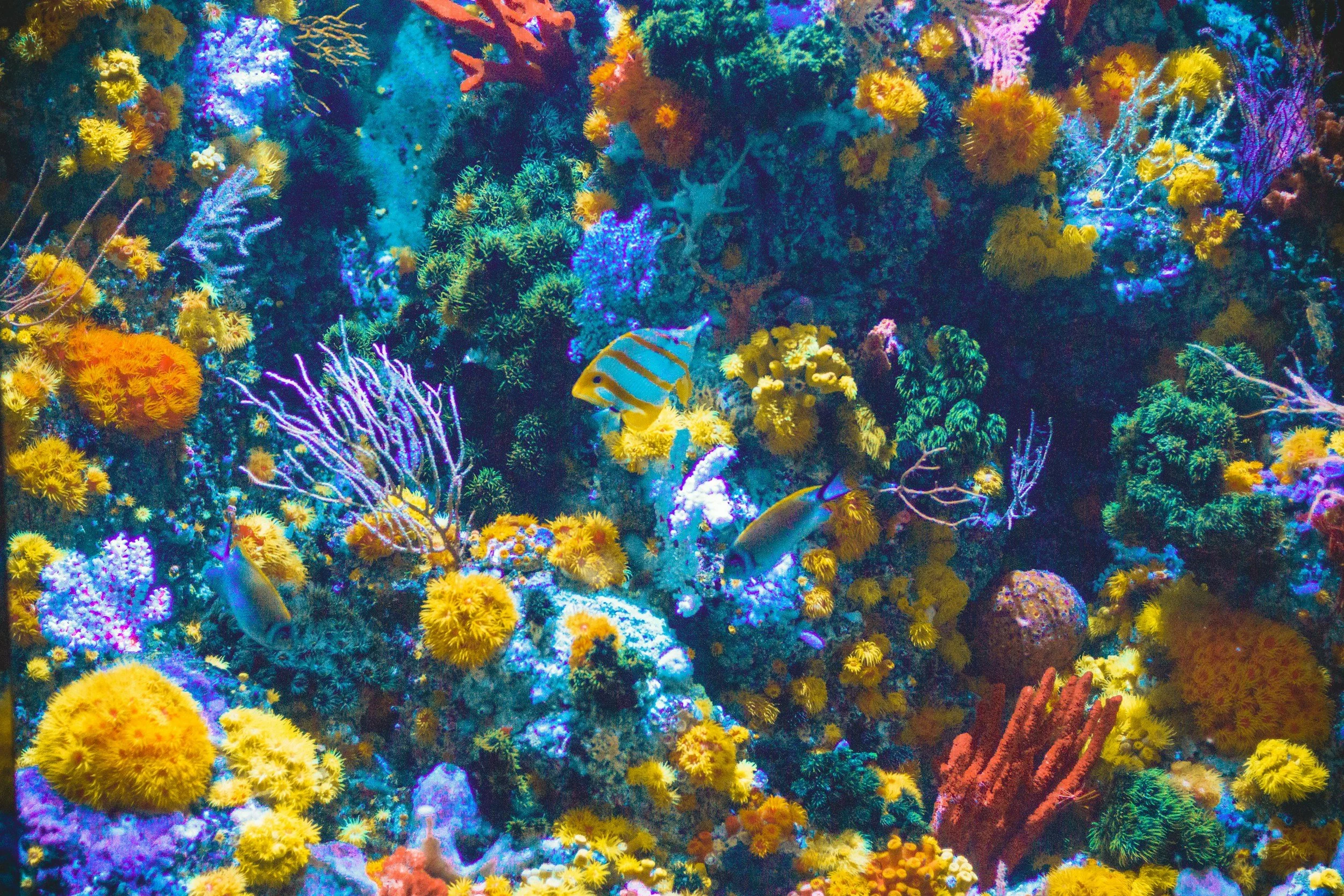The seventh planetary boundary - ocean acidification - has been breached.
A “planetary boundary” has been crossed — for ocean acidification
Scientists use the term planetary boundaries to describe limits for Earth’s key systems — like climate, freshwater, land use — so that life as we know it can continue to thrive. Stockholm Resilience Centre
Recent studies show that the ocean acidification boundary has been crossed. In simpler terms: the oceans are now more acidic than scientists believe is safe for many marine species and ecosystems. Mongabay+2Mongabay
Key points:
About 40% of the surface ocean and 60% of subsurface waters (down to ~200 m) are beyond the safe acidification threshold. Mongabay
The oceans have absorbed a huge amount of the CO₂ we’ve emitted, making them more acidic and less hospitable to marine life that rely on carbonate minerals (corals, shell-fish, etc.). Eco-Business
According to a recent assessment, 7 out of 9 planetary boundaries are now in the “danger zone”. pik-potsdam.de
Coral reefs are reaching a tipping point -- or have crossed it
At the same time, another major report indicates that warm-water coral reef systems are now entering a regime of widespread decline — a tipping point has been reached. The Guardian
What this means in practice:
Coral bleaching has become extremely widespread. One metric: more than 84% of the world’s coral reefs were exposed to bleaching heat levels since 2023. The Washington Post
The global average temperature rise (~1.3-1.4 °C above pre-industrial) may have exceeded what many coral systems can tolerate over time, triggering long-term damage. TIME
The report warns that unless global temperatures fall towards ~1.0-1.2 °C above pre-industrial, large-scale survival of warm-water reefs is very unlikely. The Guardian
Why This Matters (In Plain Language)
Coral reefs are like the rainforests of the sea: they harbour huge biodiversity, support fishing livelihoods, protect coastlines from storm surges, and contribute to tourism and culture. If they collapse or shrink drastically, many people and marine species will suffer.
Ocean acidification is more than just “sea water getting a little more acidic”. Even small changes in acidity upset the delicate chemistry many marine organisms depend on — shells, skeletons, larval development. When those fail, whole food chains can shift or collapse.
When you cross a planetary boundary or a tipping point, it means you’re moving into a zone where the system’s behaviour may change in unexpected and difficult-to-reverse ways. What used to be somewhat reversible might become locked in for decades or centuries.
These two issues are linked. The same CO₂ emissions that warm the planet also get absorbed by the oceans, making them more acidic — so we’re hitting several stressors at once.
Because these are global phenomena, local damage adds up. A reef in the Pacific or Atlantic doesn’t just affect local fish — it affects global marine ecology, climate regulation, and human communities far away.
What You Can Do: Practical Actions
While the scale of the challenge is huge, individual and local actions do add up. Here are concrete steps you can take:
• Reduce your carbon footprint
Choose lower-emission transport: walk, bike, use public transit, carpool.
If you drive, consider a more efficient or electric vehicle when possible.
At home: use energy-efficient appliances, turn off unused devices, switch to renewable energy if your provider offers it or if you can install solar.
Reduce meat (especially beef/lamb) and dairy consumption — livestock production is carbon-intensive.
• Mind your ocean and marine impact
When you travel or dive/snorkel: choose reef-friendly tours (those that follow best practices), don’t touch or stand on corals, and use reef-safe sunscreen (some sunscreens have chemicals harmful to coral reefs).
Reduce plastic use: plastics break down to microplastics that enter marine food chains; plastics also carry novel chemicals that stress ecosystems.
Support sustainable seafood: choose fish/shellfish from sustainable sources or reduce consumption of species that are over-exploited or reef-dependent.
• Reduce waste, especially chemical and nutrient pollutants
Dispose of chemicals, paints, batteries, and electronics properly so they don’t leach into water systems.
Use fewer fertilisers/pesticides in gardens—nutrient run-off contributes to algal blooms, which further stress marine systems.
Compost organic waste when you can, minimise food waste, and buy less (which cuts down on production emissions).
• Use your voice & support policy change
Get involved in local or national campaigns pushing for stronger climate policy, ocean protection zones, and emissions reductions.
Support organisations working on reef conservation, marine protected areas, and research into climate resilience for oceans.
Educate yourself and others: share credible information about how oceans and reefs are under threat, and how they’re connected to our everyday choices.
• Support restoration and protection where possible
If you live near or visit coastal/marine areas: volunteer with reef restoration or science-monitoring projects.
Support community efforts to reduce local stressors on reefs: managing coastal runoff, limiting destructive fishing practices, and supporting reef-friendly tourism.
Bottom Line
We’re at a critical juncture:
The safe boundary for ocean acidity has been crossed, meaning the oceans are now in a condition that threatens many marine ecosystems.
The world’s warm-water coral reefs appear to have hit a first major tipping point, where large-scale decline is underway unless urgent action is taken.
These phenomena aren’t isolated: they’re part of broader, interconnected changes in Earth’s systems, many of which we are only just beginning to live through.
While the scale is vast and the challenge daunting, individual actions do matter. They contribute to larger shifts in culture, policy, markets, and ecosystem resilience.
Let’s treat this as a wake-up call — not to despair, but to act. Small, consistent steps, when multiplied, help steer things away from the worst outcomes.
Ready to begin your waste-free journey?
Subscribe to our newsletter for more sustainable living tips, or download our eBook to learn how to reduce your waste and live with intention.
Waste Free Home
Want to create a more sustainable home but not sure where to start?
Our Waste Free Home downloadable workbook is your step-by-step guide to reducing waste and living more intentionally.

